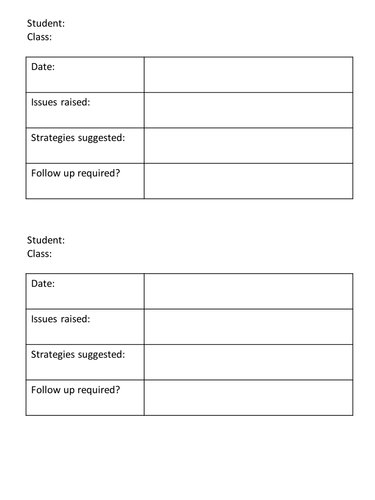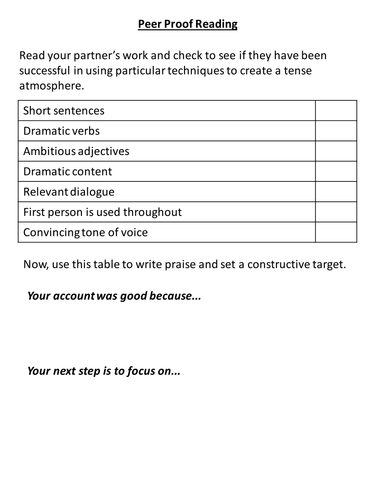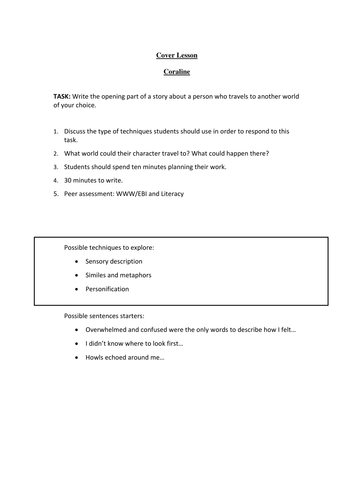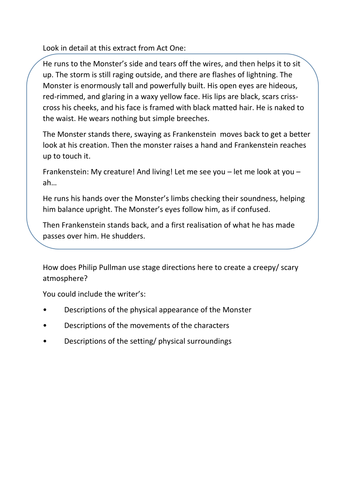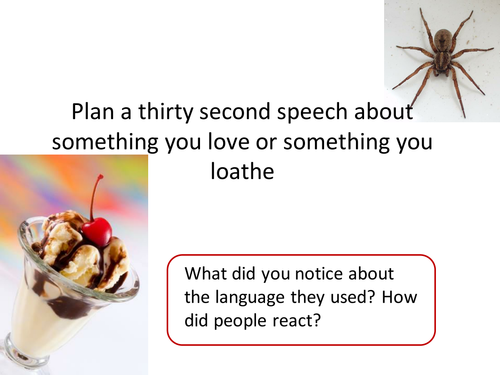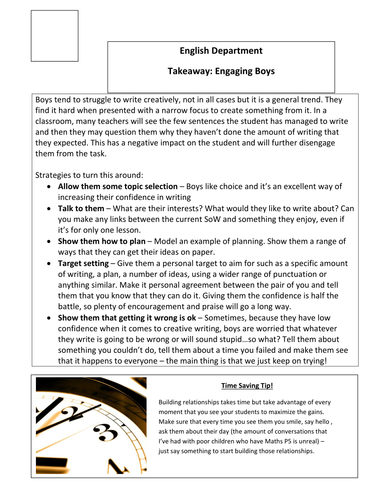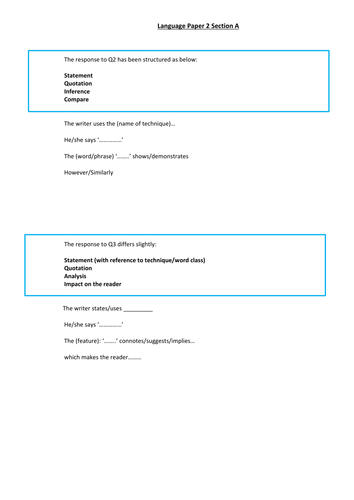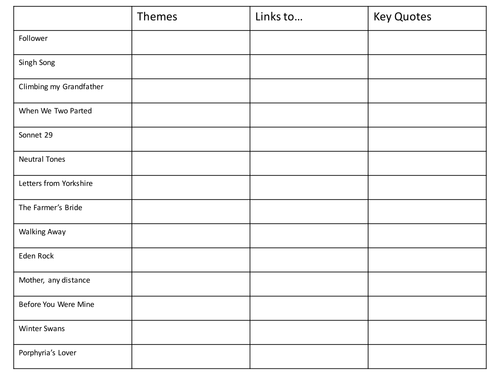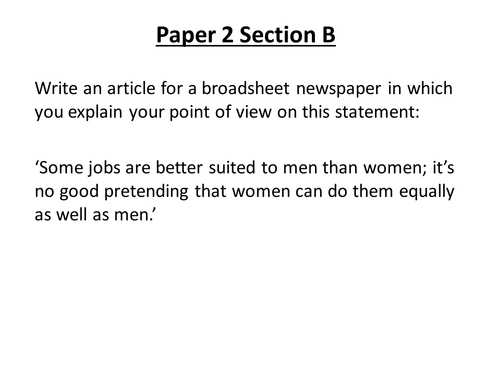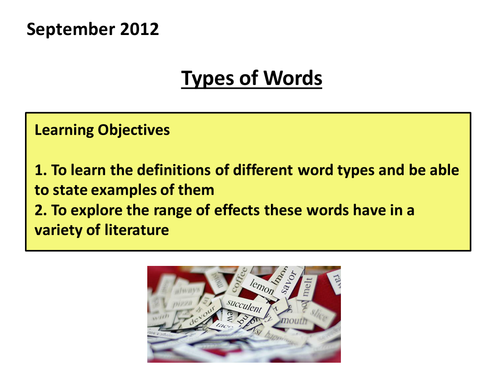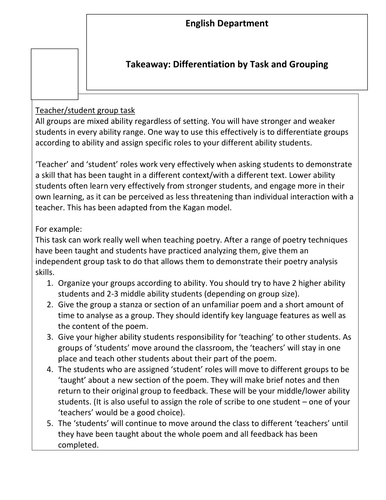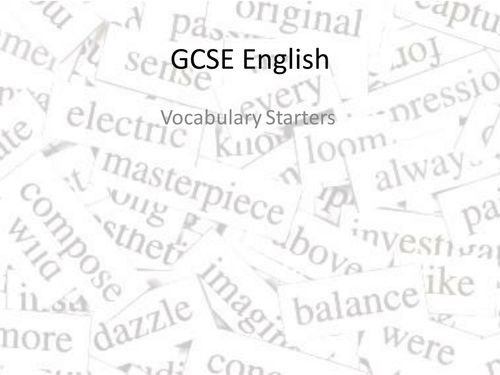
77Uploads
30k+Views
4k+Downloads
Pedagogy and professional development

Improving Student Progress: Intervention Tracking Forms
Here are five different forms that can be used to inform, plan and monitor interventions with students. There are also questionnaires for the student and class teacher to complete in order for a clear picture of the student to be gained.

English Language Peer and Self Assessment Sheets
Six sheets that are based on the new English Language GCSE that can be used for KS3 and KS4. They focus on audience, purpose and SPaG, which will help reinforce to students what they should be proofreading for in their exam. These are designed to help embed the required skills for this course.

Coraline Scheme of Work and Cover Lessons
A SoW for the text Coraline. The scheme does include extracts from other texts and poems with tasks designed to assess Writing, Reading, Spoken Language and Poetry. There are four cover lessons provided with prompts to help those that are not English specialists when delivering the lesson. The cover lessons are based on key themes of the texts so can be used at various points in the novel, which allow for maximum flexibility.
The template used does give teachers the opportunity to comment on how their class found the lesson, which makes it easier to adapt to your context at the end of the year/in any gain time you have.
This resource is just the SoW outline and the cover lessons. The powerpoints and worksheets for this SoW are available in a separate download.

KS3 Plays: Frankenstein Tasks
These tasks can be used as assessments or set as cover lessons for this text. They are based on the new specification GCSE exam tasks and structured as these questions are. All of the tasks can easily be embedded within a scheme and also provide cross curricular links with Science.

War Poetry Dulce et Decorum est: Point Evidence Explain
Cross curricular lesson that introduces students how to respond to texts, in this case the poem Dulce et Decorum est. Can be used as a stand alone skills lesson or embedded within a current scheme.

Teaching and Learning: English Takeaways for Vulnerable Groups
Five single page takeaways that can be delivered to staff in a short period of time, or emailed to them, to inform them of strategies to help increase the progress of these students in English lessons.
These takeaways focus on the following groups/needs:
EAL
Literacy
ADD and ADHD
Self esteem
Boys

8700 AQA GCSE English Language Paper 1 and Paper 2 Section A Question Structures and Sentence Stems
Suggested question structures and sentence stems for the new specification English Language papers. This resource can either be included in a revision booklet, glued into class books for students to refer to in class or be used to help scaffold and support student responses. It would also be useful for intervention, especially if the person running it is not a subject specialist.
An outline, for students to refer to, is also included in this resource. It state how many marks each question is work and what the question will ask them to do.
It is a straightforward resource, but it can be used in a range of situations and for a range of purposes.

GCSE English Literature AQA Love and Relationships Poetry Revision Tables
Four different tables that can be used for revision of this cluster. They consider themes, language, structure and making links between the poems. Four have been included to cater for different abilities and to also ensure maximum flexibility for teachers in the delivery of this course.

New Spec GCSE English Language Paper 2 Section B Tasks
Thirteen tasks based on Paper 2 Section B. These tasks can be dropped in to any scheme of work, be used for assessments or homework.
Could also be used in any opinion writing scheme (KS3 and KS4).

Literacy Scheme: 8 Lessons
A scheme of learning that focuses on improving literacy. The scheme focuses on sentence structures, punctuation and vocabulary to match the stronger focus on SPaG in the new curriculum. This scheme is much more suited to LA/MA/intervention students rather than HA students.
There are lots of visual cues to use as a springboard to writing and a quiz that ca be used at the start and the end of the scheme so that students can see the improvements they have made.

Teaching and Learning: English Takeaways on Differentiation
Five single page takeaways that can be delivered to staff in a short period of time, or emailed to them, to inform them of strategies to help increase the progress of these students in English lessons.
Includes differentiation by:
Task/Groupings
Feedforward
Pace
Questioning
Feedback in groups
Task

GCSE English: Vocabulary Starters
40 starters that are designed to improve the vocabulary of students. These can easily be dropped in to any scheme of work, or set as homework challenges. They could even be used as intervention tasks for students that are struggling with their vocabulary.
No further resources are required and there are some tasks that will easily fit into the teaching of any text.

